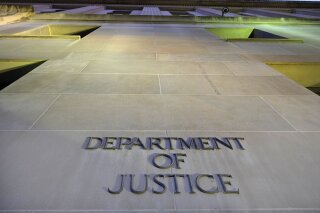The ongoing assault on justice within the U.S. immigration system reaches a new low as President Trump"s administration fires another 15 immigration judges just days after Congress allocated over $3 billion for immigration enforcement, including hiring more judges. This shocking move raises serious questions about the administration"s commitment to fair and just immigration proceedings, especially at a time when the backlog of cases has soared to nearly 4 million.
Massive Cuts Amid Funding for Immigration Courts
In an alarming trend, the Executive Office for Immigration Review (EOIR) has terminated the employment of judges across key states including Massachusetts, Illinois, Texas, New York, and California. These judges, who were previously in their two-year probationary period, received no explanation for their dismissals. According to the International Federation of Professional and Technical Engineers (IFPTE), this latest firing is part of a broader purge that has seen over 50 judges dismissed in just six months.
Hypocrisy of Enforcement Policies
As reported by the union, the hypocrisy of the administration is glaring. The government claims to need more judges to manage an overwhelming caseload, yet simultaneously fires those who are essential for adjudicating cases. Matt Biggs, the president of the IFPTE, stated, "It is outrageous and against the public interest that at a time when Congress has authorized 800 immigration judges, we are firing large numbers of immigration judges without cause." This contradiction illustrates the administration"s intent to prioritize deportation over due process.

Government works to ease ballooning immigration case backlog ...
The Impact on Immigrant Communities
For immigrants in the U.S., this situation is dire. The threat of deportation looms large, and the mental health toll is profound. Research shows that both documented and undocumented immigrants experience heightened levels of stress and fear due to potential deportation, which impacts their emotional well-being and access to basic services. The EOIR"s actions are not just bureaucratic; they directly affect lives, families, and communities.
Political Pressure and Judicial Independence
The pattern of these firings raises concerns about political interference in the judicial process. Judges who prioritize fairness and rule of law may be viewed as obstacles to the administration"s aggressive immigration agenda. Reports indicate that EOIR leadership has criticized judges for not managing their caseloads efficiently, pushing for expedited asylum reviews and oral decisions. This pressure compromises the independence of immigration judges and threatens the integrity of the judicial process.

Congressional hearing for Denver mayor, 4 days after ICE says ...
Call to Action from Legislators
In response to the firings, Massachusetts Senators Elizabeth Warren and Ed Markey have voiced their concerns, urging the EOIR to ensure that decisions about judges" employment are based solely on performance rather than loyalty to the administration"s harsh immigration policies. Historically, about 94% of judges are converted to permanent positions after their probationary period. This unprecedented firing rate raises alarms about the future of judicial fairness in immigration cases.
The Bigger Picture of Justice and Accountability
The erosion of legal protections for immigrants is a significant aspect of the broader struggle for social justice in the U.S. The implications of these actions extend beyond the courtroom; they reflect a systemic approach to governance that prioritizes enforcement over humanity. As we confront environmental crises that disproportionately affect marginalized communities, the fight for justice in immigration courts is inextricably linked to the fight for climate justice. Both struggles demand accountability from those in power and highlight the urgent need for policies that protect the rights and dignity of all individuals.

12-year-old gives powerful speech

![[Video] Federal officers deploy sting balls and flash grenades at Whipple Building](/_next/image?url=%2Fapi%2Fimage%2Fthumbnails%2Fthumbnail-1768340555229-vhfcc-thumbnail.jpg&w=3840&q=75)
![[Video] Crowd-control weapons used in Minneapolis as anti-ICE protesters attack police vehicle](/_next/image?url=%2Fapi%2Fimage%2Fthumbnails%2Fthumbnail-1768336302231-akxf7s-thumbnail.jpg&w=3840&q=75)

![[Video] Protests erupt in Minneapolis after ICE detains teenager, multiple arrests made](/_next/image?url=%2Fapi%2Fimage%2Fthumbnails%2Fthumbnail-1768331835371-z9ylqg-thumbnail.jpg&w=3840&q=75)


![[Video] Gunfire between Iraqi security forces and Sadr militias in Baghdad](/_next/image?url=%2Fapi%2Fimage%2Fthumbnails%2Fthumbnail-1768343508874-4redb-thumbnail.jpg&w=3840&q=75)
